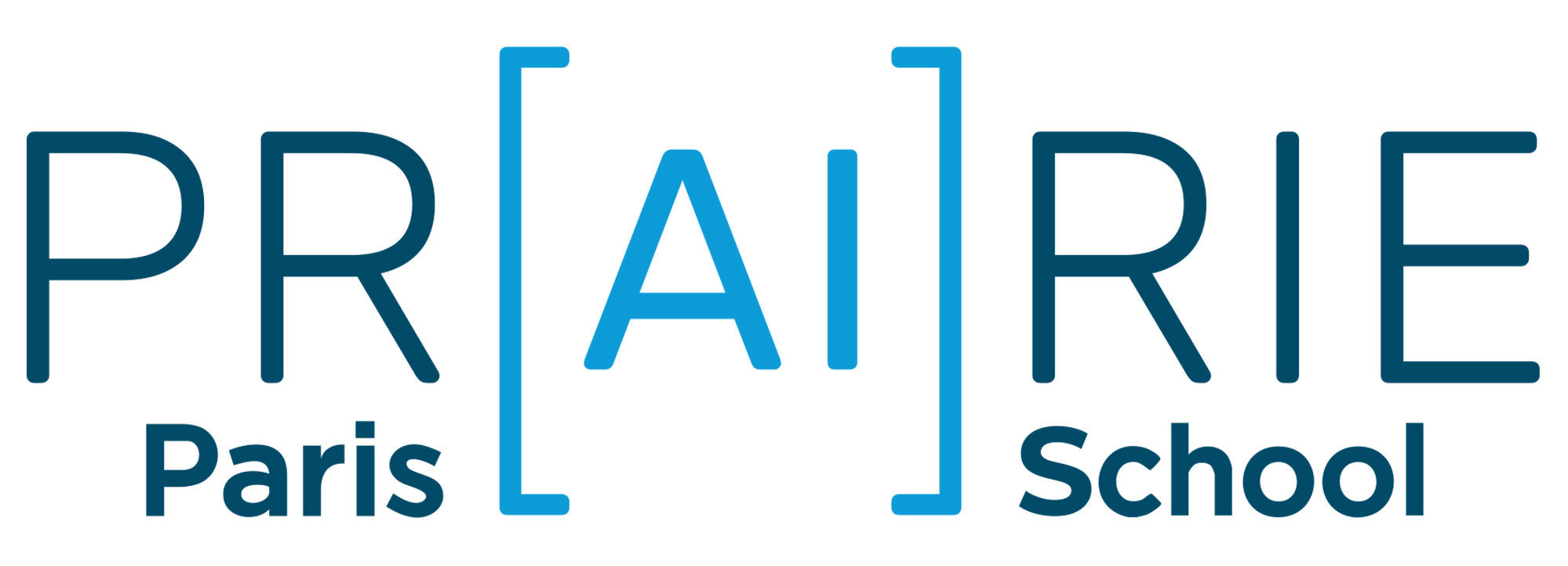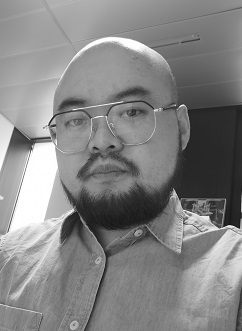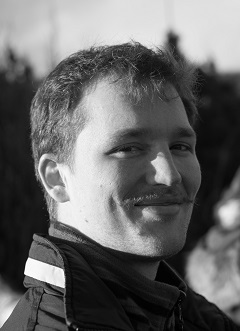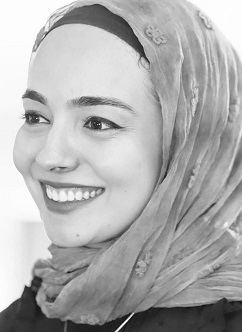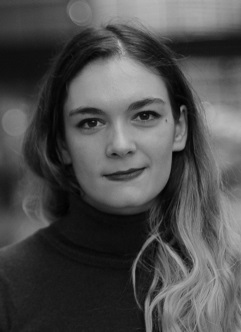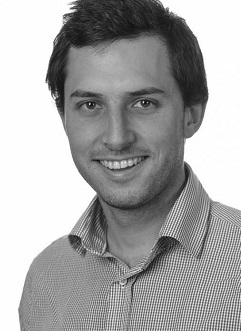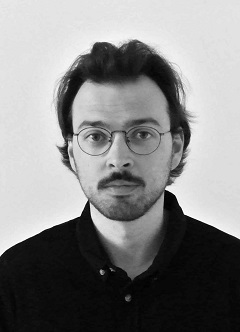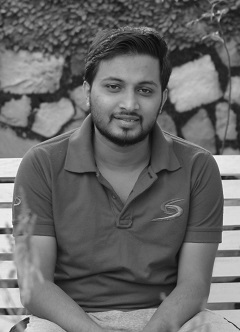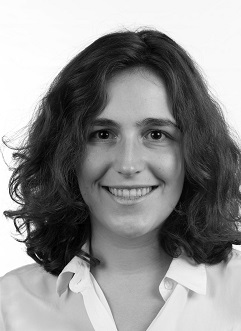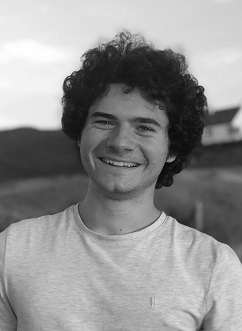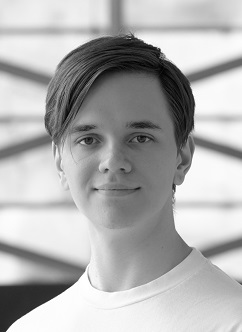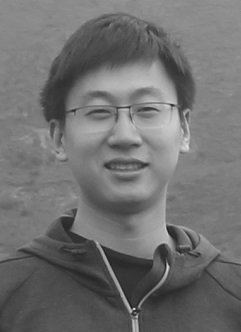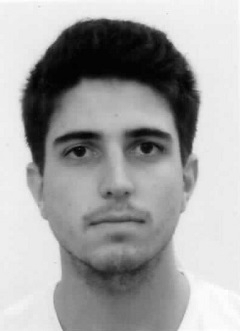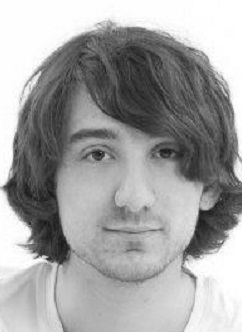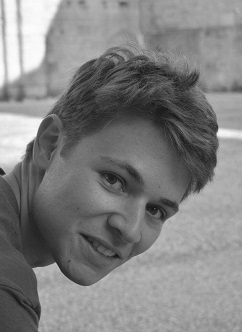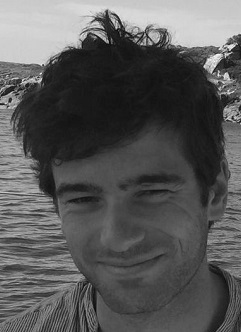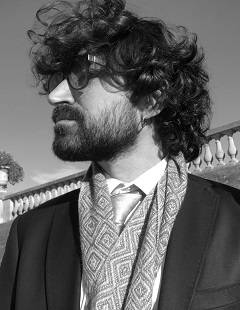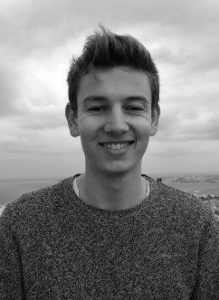FU Guanghui
guanghui.fu [at] icm-institute.org
Short bio
Master of Software Engineering; Beijing University of Technology
Thesis topic
Segmentation, classification and generative models for computer-aided diagnosis of neurological diseases from neuroimaging data.
Short abstract
The objective of this project is to design and validate deep learning methods for computer-assisted diagnosis of neurological disorders, and in particular methods that can deal with applications where annotated data is limited.
SAMARAN Jules
samaran [at] bio.ens.psl.eu
Short bio
- Ingénieur Civil des Mines de Paris –
Mines ParisTech (Master’s degree in Science and Executive Engineering)
- Master 2 – Mathématiques, Vision &
Apprentissage – ENS Paris-Saclay (MVA Master’s degree)
Thesis topic
Methods for single-cell multimodal integration.
Short abstract
Recent technological advances allow biologists to profile multiple modalities (e.g. gene expression, DNA methylation, chromatin accessibility, etc.) from a single cell. However, such data are still rare and most of the existing single-cell multi-modal data are profiled from different cells (i.e. unpaired data). My project aims at developing integrative dimensionality reduction approaches for unpaired multimodal data (i.e. a collection of monomodal data sets) that are adapted to single-cell data. This tool will enable to cluster cells based on their multimodal similarities, to extract markers from the different modalities and to transfer annotations from one data set to another.
NOUIRA Asma
asma.nouira [at] mines-paristech.fr
Short bio
- Master degree, National Engineering School of Sousse, Tunisia
- Engineer degree, National Engineering School of Sousse, Tunisia
Thesis topic
Stable feature selection in multi-locus Genome Wide Association Studies.
Short abstract
Our main goal is to provide a stable framework in Genome Wide Association Studies using Machine Learning, essentially feature selection models to deal with high-dimensional data. Many challenges lay ahead such as: genetic population stratification, linkage disequilibrium patterns clustering, the stability of the selection and the computational complexity. We aim to solve these issues by developing efficient algorithms applied to real data in case control studies such as breast cancer disease.
DO Salomé
École normale supérieure - PSL
salome.do [at] ens.psl.eu
Short bio
MSc / Engineering degree at ENSAE IP Paris
Thesis topic
Computational Content Analysis Methods for News Frames Prevalence Estimation in the Political Press.
Short abstract
This dissertation aims at providing Computational Content Analysis (CCA) methods for the analysis of News Framing in the political press. First, it aims at creating a french corpus of political press articles and providing human annotations for two news frames identification tasks, derived from the literature on strategic news framing and “horse race” journalism. Second, it aims at exploring the modalities (frame complexity, data quantity and data quality) in which Supervised Machine Learning (SML) methods can “augment” social scientists, i.e. train a model to generalize social scientists’ content analysis (CA) codebook (and subsequent text annotations) so that billions of articles can be analyzed instead of a few hundred. Third, the dissertation aims at evaluating the potential benefits of CCA over CA when it comes to estimating news frames prevalences in a corpus. What justifies using CCA over CA, and is it always justified? I will try to define the conditions on SML models performances under which news frames prevalence estimates are more accurate with CCA than CA.
GOYENS Florentin
florentin.goyens [at] dauphine.psl.eu
Short bio
PhD in mathematics at the University of Oxford
Research topic
Continuous optimization.
Short abstract
Most of my research is related to continuous nonconvex optimization. I am particularly interested in optimization problems with constraints, such as smooth manifolds; and second-order methods. I consider applications in numerical analysis and machine learning.
Short bio
Master’s degree in Theoretical Physics, 2021, Technical University Berlin
Thesis title
Analysing discourse and semantics through geometric representations.
Short abstract
I explore geometric approaches to language and discourse analysis. Currently, I work on combining methods from network science and natural language processing to gain insights on the mechanisms behind information and knowledge spreading related to climate change.
PADMANABHA Anantha
anantha.5491 [at] gmail.com
Short bio
PhD, Insitute of Mathematical Sciences, Chennai, India
Research project
Query evaluation over inconsistent databases.
Short abstract
We look at the dichotomy conjecture of evaluating boolean conjunctive queries over inconsistent databases with self joins.
FERMANIAN Adeline
adeline.fermanian [at] mines-paristech.fr
Short bio
PhD in Statistics, Sorbonne Université
Research project
High-dimensional inference in genomic data.
Short abstract
Our goal is to propose new efficient procedures for high-dimensional inference, motivated by applications to high-dimensional genomic data. More specifically, we are interested in identifying regions of the genome associated with a phenotype, through procedures that provide p-values, typically via post-selection inference procedures.
VINCENT Louis
Université de Paris / Inria / Inserm / Implicity (CIFRE thesis)
louis.vincent [at] implicity.fr
Short bio
Master 2 – Mathématiques, Vision & Apprentissage (ENS Paris-Saclay),
Master 2 – Statistiques (Sorbonne Université – Campus Pierre et Marie Curie)
Thesis title
Longitudinal data encoding applied to medical decision support in telecardiology.
Short abstract
In telecardiology as in many other fields of modern medicine, we have at our disposal large amounts of data explaining the evolution of a patient. These data can often be missing or corrupted, and data from several sources can sometimes be of different nature, which makes their exploitation difficult.
My goal is to develop a model capable of synthesizing different types of temporal data via auto-encoders to infer the state of a patient. In the context of tele-cardiology, this could for instance allow us to predict deteriorations of a patient’s health status, and thus anticipate and prevent more serious complications.
DELEMAZURE Théo
Université Paris Dauphine-PSL
theo.delemazure [at] dauphine.eu
Short bio
Master 2 IASD (ENS Ulm)
Thesis title
Context-dependent collective decisions.
Short abstract
Traditional research in social choice (axiomatic or computational) consists in proposing collective decision mechanisms that are often too rigid. We will focus on the development of families of parameterized rules, which have enough variability and flexibility to allow the development of “tailor-made” mechanisms for specific problems.
MISCHENKO Konstantin
konsta.mish [at] gmail.com
Short bio
PhD from KAUST, supervised by Peter Richtarik
Research topic
Optimization for machine learning.
Short abstract
I design new optimization algorithms for machine learning and study their convergence. I am particularly interested in stochastic methods, adaptivity, distributed training, and federated learning.
ARJONILLA Jérôme
jerome.arjonilla [at] dauphine.psl.eu
Short bio
- Master in Computer Science, Sorbonne University
- Double Bachelor in Mathematics and Economics, Université Toulouse
Thesis title
Search and Learning algorithm for games with imperfect information.
Short abstract
Monte Carlo research has revolutionised game solving, and, combined with deep reinforcement learning has led to the creation of programs such as AlphaGo, Alpha Zero or Polygames that have beaten the best human players in many games. My thesis topic will focus on the extension of the methods of Monte Carlo and Deep Reinforcement Learning for imperfect information games with several players (multi-agent system).
Short bio
- Master Degree (University of Chinese Academy of Sciences)
- Bachelor Degree (Northwestern Polytechnical University)
Research topic
Learning policies for object manipulation from real videos
Short abstract
Learning accurate policies for diverse tasks and environments is a long-standing challenge in computer vision and robotics. The goal of this project is to learn policies for object manipulation by reconstructing and modeling hands and objects in real videos with people performing related actions.
VAILLANT Ghislain
Research Software Engineer
Université Paris Dauphine-PSL
ghislain.vaillant [at] icm-institute.org
Short bio
PhD, King’s College London
Research project
Clinica
Short abstract
Clinica is the software platform for clinical neuroimaging studies involving processing of multimodal data (imaging and phenotypic) for patients with cognitive diseases. My work consists in extending this platform to provide its functionalities as a service in the Cloud in order to serve a wider scientific audience.
BERTRAND Theo
Université Paris Dauphine-PSL
tbertrand [at] ceremade.dauphine.fr
Short bio
Diplôme d’ingénieur et Master en Mathématiques appliquées de l’Ecole Centrale Lyon
Thesis title
Méthodes géodésiques et IA pour la microscopie par localisation ultrasonore.
Short abstract
Ultrasonor Localization Microscopy is a new method in super-resolved Medical Imaging that allow us to overcome compromise between precision and penetration distance in the tissues for the imaging of the vascular network. This new type of images raises new mathematical questions, especially for the segmentaton and analysis, necessary steps to achieve medical diagnostic of patients.
MAKAROFF Nicolas
Université Paris Dauphine-PSL
makaroff [at] ceremade.dauphine.fr
Short bio
M2 MVA ENS Paris-Saclay
Thesis title
Segmentation and modeling of tree structure by Deep Learning with geometric constraints, applications in biomedical imaging.
Short abstract
Deep Learning has shown real capabilities for different tasks ranging from classification to segmentation in various fields such as chemistry, computer vision or even medicine. Generally, known architectures are used to solve these problems. However, this generality of architectures, although obtaining good results, does not yet consider the geometric and topological structure of the studied data, which can lead to a reduced interpretability and acceptability of the results due to a lack of transparency
COHEN-SOLAL Quentin
Université Paris Dauphine-PSL
quentin.cohen-solal [at] dauphine.psl.eu
Short bio
PhD at the University of Caen
Research topic
Reinforcement learning in games.
Short abstract
This postdoc focuses on the study and improvement of learning and planning algorithms in games.
EVEN Mathieu
mathieu.even [at] inria.fr
Short bio
M2 Orsay/Paris-Saclay
Thesis title
On Federated and Distributed Learning Problems.
Short abstract
We study Federated and Distributed learning problems, with a strong incentive on theoretical guarantees. A (possibly large) number of agents aim at making predictions (supervised or unsupervised learning). To what extent can they benefit from collaborating with each other, depending on the learning problem and the communication constraints ?
Short bio
Ingénieur polytechnicien, École polytechnique (Palaiseau)
MPhil in Computational biology, University of Cambridge (UK)
Thesis title
Combine artificial intelligence with high resolution microscopy to better dissect the mechanism of binding and mechanism of action of multi-specific biologics.
Short abstract
Photo-activated localization microscopy (PALM) enables high-resolution recording of single proteins trajectories in live cells, thus providing precious probes of small-scale properties of the protein environment. I use graph neural networks to characterize relevant physical properties of these dynamics, and developed a flexible analysis scheme able to deal both with the diversity of motion types encountered in nature and with the fact that observed trajectories inevitably differ, to some extent, from archetypal theoretic models.
SIMSEKLI Umut
umut.simsekli [at] inria.fr
Short bio
I am a Research Faculty (Chargé de Recherche) at INRIA – SIERRA team and École Normale Supérieure, Computer Science Department. I received my PhD from Boğaziçi University, Computer Engineering Department in 2015. During 2016-2020, I was an associate professor at Télécom Paris, Institut Polytechnique de Paris and I spent one year as a visiting faculty at the University of Oxford, Department of Statistics during 2019-2020.
Topics of interest
Theory of Deep Learning, Markov Chain Monte Carlo.
Project in Prairie
My main research area is machine learning, including theory, algorithms, and applications. My ultimate goal has been to develop theory that closely follows practice and leads to methods that have impact on real problems. In particular, I have been interested in (i) analyzing deep learning methods from the lens of heavy-tailed dynamical systems theory, and (ii) implicit generative modeling algorithms by using tools from computational optimal transport.
Quote
Machine learning is a fascinating field, which continuously generates exciting and quite nontrivial theoretical, practical, and even societal/ethical questions. Attacking the questions from all these aspects simultaneously, the partial solutions offered by machine learning researchers have only posed additional questions and revealed many interesting and sometimes surprising “phenomena”. With such puzzling observations, I believe the machine learning of today should be treated as a natural science, rather than an engineering science, with many mysteries to be discovered and with many potential outcomes that might outreach its apparent scope.
Team
Postdoctoral researcher
SCHAIPP Fabian
Postdoctoral researcher
